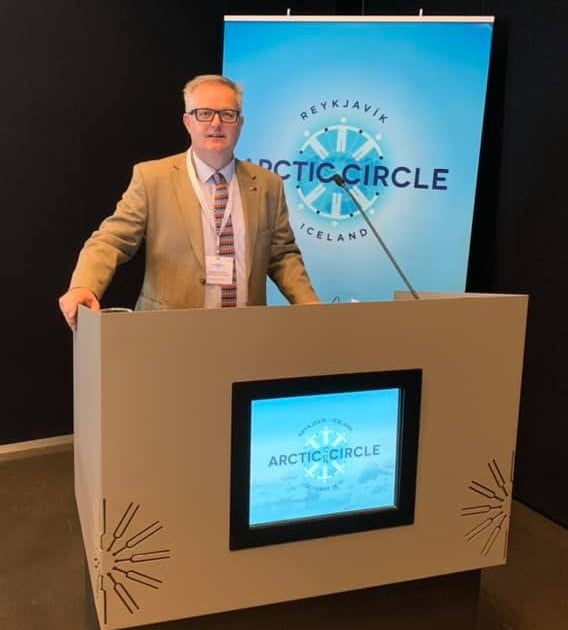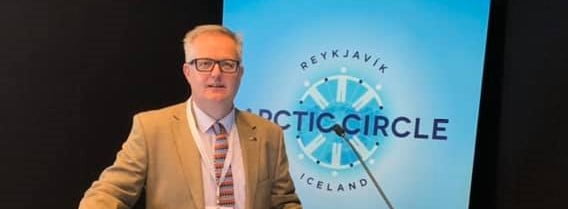On Thursday, October 21, Brendan took part in the House of Common’s general debate on COP26. A copy of his speech is below and you can listen to it by clicking on the video link above.
“I thank the Backbench Business Committee and Caroline Lucas for securing this debate, and everyone who has taken part in it this afternoon.
“We are days away from the start of COP26—one of the most important gatherings of world leaders ever to have taken place. They are coming to Glasgow with one job: to make good on the promise to cut global emissions and restrict global warming to 1.5°C, and to give the world a fighting chance in the war against climate change, because right now it is a war that we are losing. United Nations Secretary-General António Guterres pointed out just last month that the national determined contributions that have been submitted so far put us on track for 2.7°C. That is not nearly enough.
“It is impossible to overstate the importance of COP26. Glasgow is possibly our last chance, because the world has not lived up to what it promised in Paris. We should be in absolutely no doubt that, if we are to make up for that lost decade, it will require leadership, it will take courage and it will mean sacrifice on the part of us all. But there is no alternative. There are no other options. It has to be done and it has to be done now.
“As we have heard, the code red for humanity was absolutely clear: global climate change is accelerating, and human-caused emissions of carbon dioxide and other greenhouse gases are the overwhelming cause of that climate change.
“The UN Secretary-General said of that report—and who could disagree?—that this “must sound a death knell” for fossil fuels. Of course, he is not the first UN leader to highlight the issue of climate change. In 2016, his predecessor, Ban Ki-moon addressed the Arctic Circle Assembly and described the Arctic as the ground zero of climate change, highlighting that a temperature increase of 2° worldwide could well mean a temperature increase of 4°, 5°, 6° or even more in the Arctic.
“Last week I attended the most recent Arctic Circle Assembly in Reykjavik. Not surprisingly, the alarming rate of climate change experienced in the Arctic and the effects that it will have there, here and across the world were high on the agenda, with scientists confirming that, with just 20% of the Greenlandic ice sheet melting, global seas will rise by 2 metres.

“Earlier this week, I attended yet another excellent meeting of the all-party parliamentary group on the polar regions, at which UK and US scientists working on the colossal Thwaites glacier in Antarctica spoke in detail of the evidence they have of that glacier melting and the billions of tonnes of ice that fall into the ocean every single year, with the inevitable rise in sea levels that will follow. That is a stark reminder that, although the Arctic and the Antarctic can sometimes seem remote, they are not, and what happens at the poles has huge consequences for the planet as a whole.
“We are in a critical situation whereby the poles are melting, sea levels are rising and great swathes of the planet are rapidly becoming too hot for human habitation. Across the rest of the planet, already this year we have witnessed wildfires, hurricanes, tornadoes, and unparalleled levels of rainfall in Europe, Asia and Africa. Given what we have seen, surely no one could disagree with the Secretary-General of the United Nations when he said that we are “on a catastrophic path” and: “We can either save our world or condemn humanity to a hellish future.” That is why COP26 has to succeed.
“Last night I met my constituents who had organised a meeting through Time for Change Argyll & Bute. They wanted to make sure that I, as their MP, knew exactly what they expected of me, of the Scottish Government and of the UK Government ahead of COP. That included telling the UK Government and the Prime Minister that they must now live up to what was promised in Paris and guarantee to restrict global warming to 1.5°—that there can be no more horse-trading and trying to fudge this issue, and that Glasgow has to be the turning point for the world that Paris should have been; now, tragically, it has to be seen as a squandered opportunity.
“I know I am not alone in engaging with constituents on this issue. Last week my hon. Friend Patrick Grady, who has just escaped the Elections Bill Committee—taking one for the team to allow me to speak in this debate—spoke to his constituents in an online forum about exactly these issues.
“COP26 cannot be Government to Government or business to business; as much as it possibly can, it has to be a people’s COP. Whether in Argyll and Bute or Glasgow North, the indigenous people of the rain forest, the Inuit people of Greenland and Canada or the people of the low-lying Pacific islands, the people of the world who are going to be most affected by this have to be heard, and not just heard but listened to, because for far too long the people who have least responsibility for creating this emergency are bearing the brunt of its consequences.
“This morning I attended a meeting organised by Christian Aid to talk about loss and damage and what has to be a core principle of climate justice. We were joined by people from Bangladesh and Nigeria who spoke about exactly that—how the global north has created a problem that the global south is now having to live with, every single day. Between them, historically—it is important that we think in historical terms—the global north of the UK, Canada, Russia and the United States has produced 50% of the world’s harmful emissions, while Burundi, Democratic Republic of Congo, Yemen, Sierra Leone, Haiti, Chad, Niger, Malawi, Zambia and Madagascar, combined, have contributed 0.08% of harmful emissions. Yet today Madagascar is experiencing its worst drought in 40 years and is facing a catastrophic famine. It is a major problem for the global south, and we as the global north have to take responsibility for it.
“Since 2020, Bangladesh, one of the poorest countries in the world, has suffered damages estimated at around $2 billion because of natural disasters, including cyclones, floods and rising sea levels.
“I join my hon. Friend Deidre Brock in congratulating the Scottish Government on being so determined to make this a people’s COP and for setting up the world’s first climate justice fund to support vulnerable communities in Malawi, Zambia and Rwanda to address the impact of climate change.
“It would send a wonderful message to the rest of the world if the United Kingdom Government set up their own climate justice fund ahead of COP26.”
